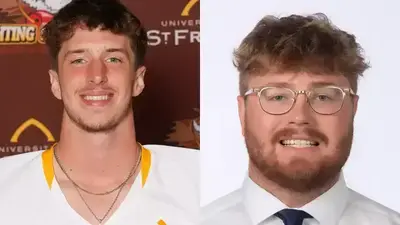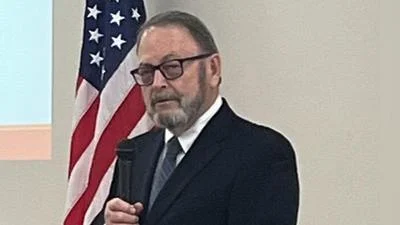Illinois State Board of Education met Aug. 19.
Here is the minutes provided by the board:
ROLL CALL
Board Chairman Mr. Darren Reisberg called the meeting to order at 10 a.m.
Chair Reisberg announced that the Board meeting was being audio-cast live over the internet and video recorded. He declared that an in-person meeting is not practical or prudent because of the Gubernatorial Disaster Proclamation due to the COVID-19 pandemic, and that made a physical presence for the meeting unfeasible.
Chair Reisberg asked the clerk to call the roll. A quorum was present with seven members. State Superintendent Dr. Carmen I. Ayala was also in attendance.
Members Present (via webinar):
Mr. Darren Reisberg, Chair of the Board Dr. Donna Leak, Vice Chair
Dr. Christine Benson
Dr. David Lett
Ms. Susie Morrison
Ms. Jacqueline Robbins
Ms. Jane Quinlan
Board Secretary Dr. Cristina Pacione-Zayas joined the meeting (via webinar) at 10:34 a.m.
Chair of the Board Reisberg recognized and thanked Board members Chris Benson and Cynthia Latimer for their work for the past year and a half on the Literacy Advisory Board. He also recognized and thanked Marci Johnson and Erica Thieman for taking on their roles as designees of the Board on the Literacy Advisory Board.
Dr. Benson spoke of her enriching experiences on the Literacy Advisory Board and offered some of her compiled resources to those taking up the position.
Dr. Ayala thanked everyone across the state who is working together so that our students can learn safely. She also provided several important updates. She started by saying that there is ongoing support being provided to our schools and districts and listed the six fundamental requirements for schools to be functioning safely if they are in-person. She also described supplemental documents that were provided to schools to offer additional guidance. She then announced the release of the Priority Learning Standards, which is meant to help educators address learning loss as well as offer guidance in optimizing the learning experience. Additionally, a work group has been convened to review and revise the Illinois Learning Standards for social science through a lens of equity and social justice. Lastly, Dr. Ayala introduced Sera Gorucu, the new Project 55 Fellow for the year.
Dr. Leak recommended to Dr. Ayala that the aforementioned work group consult with people in Illinois who have relevant experience regarding civil rights, one example being the Rev. Jesse Jackson. Chair Reisberg outlined what the approval process would look like for the new standards.
Dr. Lett asked about a waiver for U.S. Department of Agriculture (USDA) child nutrition programs. Jeff Aranowski explained that the USDA administered flexibilities and waivers, allowing for the summer food service program to be applied in the spring. This has not been permitted for the 2020-21 school year, but we have applied for 17 flexibilities that will allow for the upcoming fall and spring to resemble the 2020 spring, though it is possible the USDA may not approve them or even respond. Mr. Aranowski highlighted one major difference, which is that schools will only be able to be reimbursed for the feeding of children who are eligible for free and reduced-price lunches. Dr. Lett expressed disappointment on behalf of community members. Mr. Reisberg asked that the agency keep the applications for flexibilities on file and be ready to resubmit them in the event of some change in the administration that may open up the opportunity for change in this policy.
PUBLIC PARTICIPATION
Chair Reisberg reminded those in attendance of the updated public participation policy and the sign-up procedures for today’s remote meeting.
Susan Stanton from ACT Now spoke about after-school programs. She thanked the Board members for their leadership during this difficult time and acknowledged the hard work and dedication that all after-school programs put in to support the schools. She wanted to highlight for ISBE the importance of voices from the leaders of after-school programs, as these were missing in the reopening plans published in June. She expressed concern regarding language used to discourage schools from engaging in external partnerships, as this may be to the detriment of the students. She suggested that ISBE allocate funding toward partnerships with after-school programs in order to cater to the need for a safe space for students who are learning remotely but whose parents cannot serve as their full-time guide in this endeavor. She also encouraged greater collaboration with agencies, such as the Department of Children and Family Services and the Illinois Department of Human Services, to better facilitate proper access and use of the funding when it is available. Dr. Ayala informed Ms. Stanton that there is funding for after-school programs that will be allocated in the coming month. Mr. Aranowski offered to touch base with Ms. Stanton about the barriers to funding usage she has seen and how they can be removed.
Kaleb Smith, director of the Madison County Career and Technical Education (CTE) System, spoke about CTE. He thanked the Board members for their leadership and continued support of CTE. He highlighted the utility of CTE and how it benefits students in Illinois. He categorized CTE students as essential workers and described the demand from the community for more CTE space. He requested that the Board continue to support and develop CTE programs via current state and federal grants, as well as the new CTE Pathway grant.
RESOLUTION APPRECIATING THE BODY OF WORK OF CYNTHIA LATIMER
Chair Reisberg described Cynthia Latimer’s consistent service to education throughout her life before resolving that the Illinois State Board of Education extends its sincere appreciation and gratitude to her for her commitment and dedication to the students of Illinois and the field of education.
Ms. Morrison, with great respect and much gratitude, moved that the State Board of Education hereby approves the resolution for Cynthia Latimer.
Dr. Leak seconded the motion with great respect, and it passed by unanimous roll call vote.
DISTRICT APPROACHES FOR REOPENING SCHOOLS PRESENTATION
Dr. Ayala highlighted the hard work of educational leaders across the state and explained that a panel was organized in order to hear from district superintendents about how they have been managing the return to school and allow for the Board to ask questions about their processes.
Dr. Ernesto Matias explained how he would be conducting the panel and introduced the panelists: Dr. Jennifer Gill, Springfield School District 186; Josh Quick, Robinson CUSD #2; Tim Smith, Princeton Elementary School District 115; and Dr. Johnnie Thomas, Rich Township High School District 227. Dr. Thomas joined the call later.
Dr. Matias asked Mr. Quick: Can you explain how Elementary and Secondary School Emergency Relief Fund dollars are being used in strategic support of your plan? Mr. Quick explained that in his district, a committee was put together in order to determine how best to leverage the funds. About two-thirds of the funding went toward technology (providing devices and internet accessibility) and one-third went to health and safety.
Dr. Matias asked Dr. Gill: What plans do you have to support special education students, English Learners (Els), and early childhood students? Dr. Gill explained that this is a question her team has been discussing and is still attempting to answer in a way that meets everybody’s needs. She explained that her district will be going fully remote for the first quarter, but aims to switch to a hybrid model as soon as is possible. She said the feeling is that this will be beneficial to special education students, ELs, and early childhood students. The district is coordinating with community organizations to optimize experiences for students when they return. The district also has individualized remote learning plans for every student with an Individualized Education Program (IEP) and plans for further revisions as the school year goes on to better meet district needs.
Mr. Smith described the makeup of his district and the process it went through to decide on in- person vs. remote learning.
Dr. Matias asked Mr. Quick: What steps have you taken to ensure equity and access to the students in your district? Mr. Quick explained that the district had determined that one of the best steps to take toward achieving equity was to offer in-person learning. It also took steps to ensure that all students had the technology and internet access necessary to learn remotely. He discussed the issue regarding lack of control in parental engagement in remote learning, and shared that the district is continuously looking for solutions to low engagement.
Dr. Matias asked the same question to Dr. Gill and Mr. Smith, who offered answers similar to Mr. Quick’s in that they have been taking steps to meet the needs of all their students.
Chair Reisberg asked the panel members how they have been making use of the Learning Technology Center as a resource. Each superintendent in turn described its impact.
Dr. Johnnie Thomas joined the call.
Dr. Matias asked Dr. Thomas: How did you engage stakeholders, particularly parents, in the development of your plan for reopening? Dr. Thomas explained that before the pandemic hit, the district had developed a remote plan with the help of parents. After the spring, a diverse task force was put together to determine how well the plan worked and what could be done to improve. The task force put together an electronic survey, a thought exchange, a coffee chat, and a community town hall.
Dr. Matias asked Dr. Thomas: What additional supports, trainings, and resources are you providing to parents and educators? Dr. Thomas explained that the district advanced the technology of its school, ensured that families had adequate access to internet and tech, and provided workshops for parents to learn more about how to use the technology effectively. The teachers have all been trained to use Google+ and are being trained in how to engage students remotely. There have also been advancements to the classroom setup to ensure that teachers will be able to engage with all their students, both remote and in-person.
Ms. Morrison asked Mr. Quick: Will all teachers be using the same platform? Mr. Quick said, yes, they will all be using Google+, which both the teachers and students will be trained to use.
Dr. Pacione-Zayas asked Dr. Gill: How is your district tending to the developmental needs of early childhood learners? Dr. Gill explained that the district will be attempting to make use of both synchronous and asynchronous instruction, as well as project-based learning that requires less screen time and encourages brain breaks while still facilitating learning and discussion. There are also guided excursions being planned.
Dr. Leak asked Mr. Quick: How is your district managing its personal protective equipment? Mr. Quick explained that students will present signed slips that affirm they are free of symptoms. There will also be temperature scanners at the entrance to the school.
Dr. Lett asked Dr. Gill: How challenging has it been to make the decision to go remote when nearby districts have gone a different route, and how have you responded to the criticisms from the public that there aren’t specific enough metrics for making the decision? Dr. Gill explained that the district prepared both a remote and a hybrid plan so that it is prepared to issue either, depending on how circumstances evolve. They as administrators are evaluating what the circumstances call for based both on guidance issued by the state as well as parental input, though this has proven difficult as families turned out to be split down the middle in their preferences. There are countless factors to take into consideration in terms of how a community is doing and how it may affect students. It is difficult to assign specific metrics that determine whether students should be attending school remotely or in-person. The leaders of the district are staying alert to changes and any and all guidance being issued, and they are constantly discussing what the safest and most beneficial option is.
Chair Reisberg asked Mr. Smith: Is your district experiencing a teacher shortage? Mr. Smith said that it is not experienced a teacher shortage but is experiencing a substitute shortage.
Chair Reisberg asked Dr. Thomas: Are there any particular issues your students and families are contending with, and are there any specific strategies your team is using to support families in social-emotional ways? Dr. Thomas explained that his team is partnering with two community organizations in order to provide social-emotional support to the students, and he is confident they are in a good place in that regard. Two issues the district is still contending with are the need for more efficient testing in order to conduct better contact tracing and feeding all of its families.
Chair Reisberg thanked the superintendents for their time and leadership.
The Board recessed for a five-minute break.
SCHOOL YEAR 2020- 2021 REPORT CARD AND 2021 ASSESSMENTS
Dr. Brenda M. Dixon, Research and Evaluation officer; Patrick Payne, director of Data Strategies and Analytics; and Dr. Sean Clayton, director of Assessment, presented on changes in the Report Card and assessments as a result of the COVID-19 pandemic.
Dr. Pacione-Zayas asked about the possibility of Illinois foregoing the need for assessments. Dr. Ayala explained that ISBE is working with the Council of Chief State School Officers to get the U.S. Department of Education (ED) to release more guidance regarding this issue. She explained that there are millions of dollars’ worth of grants and resources at the federal level at stake if Illinois were to take a position of not assessing students; however, if a waiver becomes available, Illinois will apply for it. Chair Reisberg highlighted that there may be varying opinions on the Board regarding the value of the statewide assessments. He said that if the opportunity to not administer them were to arise, it should come back to the Board for discussion.
Ms. Morrison asked that the School Code citations regarding gifted and accelerated students be presented at the next Education Policy Planning Committee meeting.
Dr. Pacione-Zayas again questioned the value of the assessments and urged the Board to reconsider administering them solely for the purpose of funding.
CLOSED SESSION
Dr. Pacione-Zayas moved that the Board enter into closed session under the exceptions set forth in the Open Meetings Act of the State of Illinois as follows:
A. The appointment, employment, compensation, discipline, performance, or dismissal of specific employees of the public body or legal counsel for the public body, including hearing testimony on a complaint lodged against an employee of the public body or against legal counsel for the public body to determine its validity. However, a meeting to consider an increase in compensation to a specific employee of a public body that is subject to the Local Government Wage Increase Transparency Act may not be closed and shall be open to the public and posted and held in accordance with this Act. 5 ILCS 120/2(c)(1)
B. Litigation, when an action against, affecting or on behalf of the particular public body has been filed and is pending before a court or administrative tribunal, or when the public body finds that an action is probable or imminent, in which case the basis for the finding shall be recorded and entered into the minutes of the closed meeting. 5 ILCS 120/2(c)(11)
She further moved that Board members may invite anyone they wish to be included in this closed session.
Dr. Benson seconded the motion, and it passed with a unanimous roll call vote.
The open meeting recessed at 12:25 p.m. and the Board went into closed session at 12:35 p.m. The open meeting reconvened at 1:09 p.m.
CONSENT AGENDA
Dr. Ayala reviewed the items under the consent agenda.
Ms. Morrison expressed concern over the erasure of statements that explain the requirement for supervisors to have licensure in Part 1. Dr. Lett echoed this concern. Chair Reisberg highlighted that this will be coming back to the Board after public comment and discussion.
Dr. Pacione-Zayas requested that details be provided in a weekly update about how we are measuring the progress of beneficiaries of the McKinney-Vento grant.
Dr. Benson moved that the State Board of Education approve the consent agenda. Ms. Robbins seconded the motion, and it passed with a roll call vote.
The following motions were approved by action taken in the consent agenda motion:
Approval of Minutes
Plenary Minutes: June 17, 2020
The Illinois State Board of Education hereby approves the June 17, 2020, meeting minutes.
Rules for Adoption
Part 1 (Public Schools Evaluation, Recognition, and Supervision) and Part 24 (Standards for all Illinois Educators) Educator Licensure Updates and Changes
The State Board of Education hereby authorizes the State Superintendent to adopt a motion authorizing solicitation of public comment on the proposed amendments.
Part 226 (Special Education) Multiple Public Act Changes and Cleanup
The State Board of Education hereby authorizes the State Superintendent to the State Superintendent to adopt a motion authorizing solicitation of public comment on the proposed amendments.
Contracts and Grants Over $1 Million
Approval of McKinney-Vento Homeless Children and Youth Grant Program Additional Grant Funds
The State Board of Education hereby authorizes the State Superintendent to release additional grant funds to fiscal year 2021 McKinney-Vento Continuation Grant recipients and to upwardly amend grant agreements. Six of the seven subgrantees (known as Lead Area Liaisons) are expected to receive McKinney-Vento Homeless Children and Youth Grants that exceed $1 million over a three-year grant cycle (FY 2020-22).
Approval of National Association of School Boards of Education Dues
The State Board hereby authorizes the State Superintendent to pay the membership dues for the National Association of State Boards of Education (NASBE) for 2021.
APPROVAL OF LEARNING TECHNOLOGY CENTER INTERGOVERNMENTAL AGREEMENT AWARD
Approval of Learning Technology Center Intergovernmental Agreement Award
Dr. Lett made a motion to approve that the State Board of Education hereby authorize the State Superintendent to increase the total cost of the renewal of the intergovernmental agreement with Champaign and Ford Counties Regional Office of Education 9 to administer the Learning Technology Center (LTC) for FY 2021 by $178,180 to a total amount not to exceed $1,578,180. The upward amendment is to enable to LTC to support ISBE with the administration of competitive grants to close the digital divide in Illinois.
Ms. Robbins seconded the motion and it passed with a roll call vote of seven members. Jane Quinlan abstained.
DISCUSSION AND APPROVAL
Approval of Virtual Coaching
Audrey Soglin, executive director of the Illinois Education Association (IEA), and Jane Russell, secretary-treasurer of the Illinois Federal of Teachers, presented on a proposed virtual coaching program.
Ms. Morrison asked if the program could extend its support into the teachers’ second year. Ms. Soglin said that they could look into requesting permission from ED to allow for that.
Dr. Leak recommended adding more clarity to the possible communication process that the coaches, mentors, and administrators would go through to support the new teacher.
Dr. Pacione-Zayas asked a question regarding the possibility of adjusting the pay to reflect cost of living and adequate compensation for coaching. Ms. Soglin said she would discuss with Legal the possibility of adjusting the hourly salary according to region in Illinois, as well as looking into the possibility of raising the rate overall.
Dr. Pacione-Zayas also asked that Preschool for All teachers be included in the virtual coaching program.
Ms. Robbins made a motion for the State Board to hereby authorize the State Superintendent of Education to award a contract to the IEA to provide virtual coaching and mentoring to new teachers during the 2020-21 school year.
Ms. Morrison seconded the motion, and it passed with a unanimous roll call vote.
UPCOMING BOARD ACTIONS
Part 1 (Public Schools Evaluation, Recognition and Supervision) There were no questions from the Board on this item.
Part 254 (Vocational Education) Perkins Updates There were no questions from the Board on this item.
Approval of Amendment to the Intergovernmental Agreement with University of Illinois Extension
There were no questions from the Board on this item.
Fall 2020 Waiver Report There were no questions from the Board on this item.
Contracts and Grants Over $1 Million
Approval of Title I School Improvement – 1003(a) Allocations
Ms. Morrison noted a delay in notifying districts of their allocations and asked if they have been notified yet. Dr. Matias explained that this information went live with eGMS. Finance Officer Robert Wolfe explained why there was a delay and how it is being handled.
Approval of After-School Programs Grants (Allocations for LEAs and RFP for Non-LEAs) Dr. Pacione-Zayas asked about a revision she requested. Mr. Aranowski said the revision was made. She also asked about an update to the 21st Century Community Learning Centers guidance. Mr. Aranowski said he would follow up and send the update to her.
Approval of YouthBuild Illinois Grant There were no questions from the Board on this item.
DISCUSSION ITEMS
September Board Retreat Planning
Dr. Ayala informed the Board that there will be a member from NASBE present at the September Board retreat to speak about equity. The Equity Action Working Group will be presenting on its work. Dr. Ayala will also present the Strategic Plan, and there will be legislative update.
Dr. Pacione-Zayas asked that the legislative update include discussion of a bill passed to extend IEP eligibility to students turning 22.
Chair Reisberg asked for Board members’ thoughts on the retreat being remote vs. in-person. Dr. Pacione-Zayas, Dr. Leak, and Dr. Benson expressed desire for it to be remote.
Strategic Plan Update
Dr. Ayala explained that the agency is at work adjusting the social science standards. She also explained some of the strategies that have been developed to cope with COVID-19’s impact on learning standards and conditions.
Chair Reisberg asked that the plan include an intent to adjust teacher prep to help equip new teachers to teach under these conditions.
FY22 Budget Development Process
Ms. Quinlan said the Finance and Audit Committee is suggesting three virtual budget hearings be held this year. Each will be three hours long, and each organization will be permitted to present one verbal testimony (no longer than three minutes) in addition to unlimited written testimony. Both forms will be considered equally. Participants will be required to sign up ahead of time. A 15-minute budget presentation will be recorded and offered online, as opposed to being presented during the hearing. Budget requests will be presented to the Board by agency staff in November. In December, the Commission on Government Forecasting and Accountability will present a Preliminary Revenue Outlook on the next fiscal year. In January, the Board will vote on the final recommended budget.
Chair Reisberg asked if the budget hearings could be recorded and made available to the public. Other members of the Board expressed agreement with that idea.
Dr. Pacione-Zayas expressed the importance of emphasizing that oral and written testimonies will be weighted equally and to communicate clearly all the possible ways for the public to participate.
ANNOUNCEMENTS AND REPORTS
Superintendent/Senior Staff Announcements
Dr. Ayala emphasized how intense this time of year has been and expressed her appreciation for leaders across the state who are doing incredible things to make education work in Illinois.
Chair of the Board’s Report There were no announcements at this time.
Member Reports There were no announcements at this time.
INFORMATION ITEMS
ISBE Fiscal & Administrative Monthly Reports Freedom of Information Act Monthly Report
MOTION FOR ADJOURNMENT
Dr. Leak moved that the meeting be adjourned.
Ms. Robbins seconded the motion, and it passed by unanimous voice vote. The meeting adjourned at 2:58 p.m.
https://www.isbe.net/Documents_Board_Meetings/20200819-Agenda-Minutes.pdf






 Alerts Sign-up
Alerts Sign-up